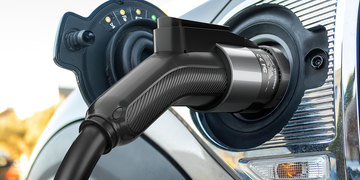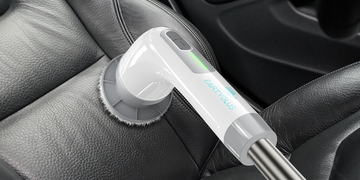With the increasing popularity of electric vehicles (EVs), one of the key decisions EV owners face is whether to primarily use home charging or rely on public charging infrastructure. Both options have their advantages and disadvantages, and the choice depends on individual circumstances and needs. Here's a breakdown of the pros and cons of home EV charging and public EV charging:
Home EV Charging:
Pros:
Convenience: Home EV charging is incredibly convenient. You can charge your EV overnight or whenever it's parked at home, making it effortless to maintain a full battery.
Cost-Effective: Home charging is usually more cost-effective than public charging, as it often involves lower electricity rates and avoids the fees associated with some public charging networks.
Full Control: You have complete control over your home charging setup. You can choose the charging speed and equipment that best suits your needs, including installing a Level 2 charger for faster charging.
Privacy and Security: Charging your EV at home provides a level of privacy and security. Your vehicle is on your property, reducing the risk of damage, theft, or vandalism that can occur at public charging stations.
Cons:
Upfront Costs: Setting up a home charging station can be expensive, especially if it requires professional installation or electrical upgrades.
Limited Range: Home charging is limited to the range of your vehicle, which may not be sufficient for long trips or if you have multiple EVs.
Apartment/Rental Restrictions: If you live in an apartment or rental property, you may not have access to convenient home charging options, which can be a significant drawback.
Public EV Charging:
Pros:
Accessibility: Public charging stations are widely available, making them suitable for urban and suburban areas. They are especially useful for EV owners without dedicated parking spaces.
Extended Range: Public charging stations can significantly extend the range of your vehicle, making long trips and road travel feasible.
Variety of Locations: Charging stations are often located at shopping centers, restaurants, and other convenient places, allowing you to charge while you shop, dine, or run errands.
Cons:
Wait Times: Depending on the time and location, you may encounter waiting times at public charging stations, especially during peak hours. This can be inconvenient and time-consuming.
Costs: Public charging can be more expensive, particularly if you rely on fast-charging stations. Some charging networks require membership fees or impose higher rates.
Charging Speed: The charging speed may vary depending on the station, and not all stations offer fast charging. Slower charging can be less convenient, especially if you're in a hurry.
Network Compatibility: Different EVs may require specific adapters or may not be compatible with all charging networks, limiting your options.

Types of Home and Public EV Chargers
Home EV Chargers:
Level 1 Chargers: These chargers use a standard household electrical outlet (120 volts) and are typically included with your EV purchase. Although they are the slowest charging option, Level 1 chargers are suitable for overnight charging.
Level 2 Chargers: Installed using a dedicated 240-volt circuit, Level 2 chargers provide faster charging compared to Level 1. They are commonly used for home installations and can fully charge an EV in a matter of hours. However, there are portable Level 2 chargers that don't require installation. The Lectron V-Box, for example, can be plugged directly into a NEMA 14-50 outlet.
Public EV Chargers:
Level 2 Chargers: These chargers are commonly found in public spaces like shopping malls, offices, and parking lots. These public stations offer faster charging than Level 1 chargers and are suitable for topping up during your daily activities.
DC Fast Chargers: Public charging networks often include DC Fast chargers, which offer fast charging for compatible EVs. They can charge an EV to 80% capacity in approximately 20-30 minutes, making them ideal for longer trips and quick stops.
Costs of Charging at Home vs. in Public
Calculating the cost of charging your EV at home versus using public charging stations involves considering factors like electricity costs, charging speeds, and potential fees. Let's break down the costs for both scenarios:
EV Charging at Home:
Electricity Rate: Suppose your local electricity rate is $0.12 per kilowatt-hour (kWh).
Charging Efficiency: On average, EV charging is about 85% efficient. This means that for every 100 kWh of electricity you use to charge, your EV's battery stores around 85 kWh.
Charging Time: Let's assume your EV has a 60 kWh battery capacity and you charge from 20% to 80%, which is 48 kWh (60 kWh x 0.8 - 60 kWh x 0.2).
Calculations:
Energy Used: 48 kWh (battery charge needed)
Cost: 48 kWh x $0.12/kWh = $5.76
Charging at a Public EV Station:
Charging Rate: Public charging stations may have different rates. Let's assume you use a Level 2 charging station that costs $0.25 per kWh.
Charging Time: Similar to the home charging scenario, you're charging from 20% to 80%, which is 48 kWh.
Calculations:
Cost: 48 kWh x $0.25/kWh = $12.00
Comparison:
Charging at home: $5.76
Charging at a public station: $12.00
As you can see, charging your EV at home is significantly cheaper than using a public charging station for the same amount of energy. This calculation doesn't include any membership or subscription fees that some public charging networks might require. Additionally, charging speeds vary, so while home charging might take longer, it can be more cost-effective if you charge overnight or during off-peak hours when electricity rates are lower.
Home EV Charging vs Public EV Charging: Pros and Cons, Remember that these calculations are simplified examples. Actual costs can vary based on factors such as your specific electricity rates, charging speeds, and any additional fees associated with public charging. Some electric cars also come with complimentary free charging, often arranged through partnerships between automakers and charging network operators.





